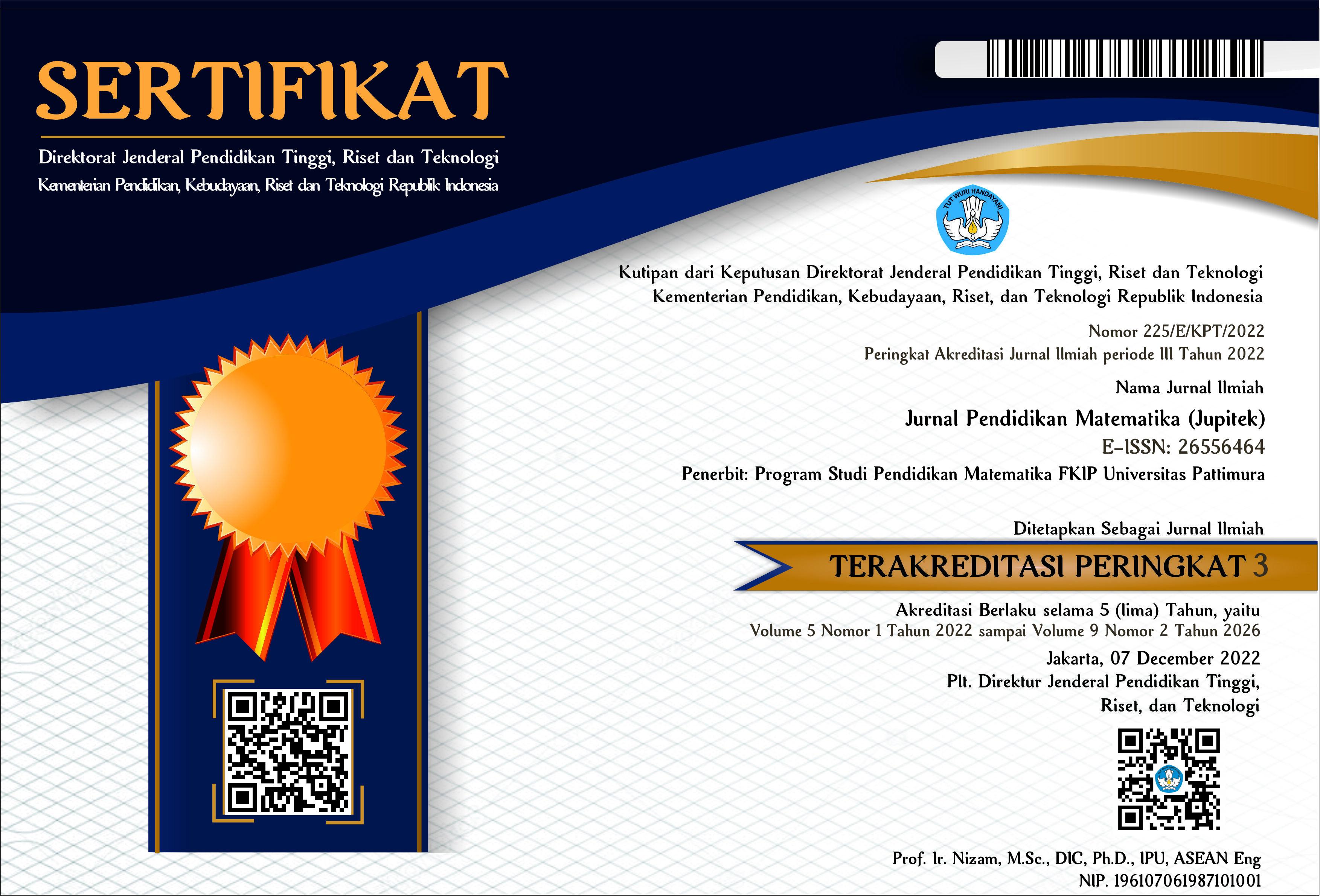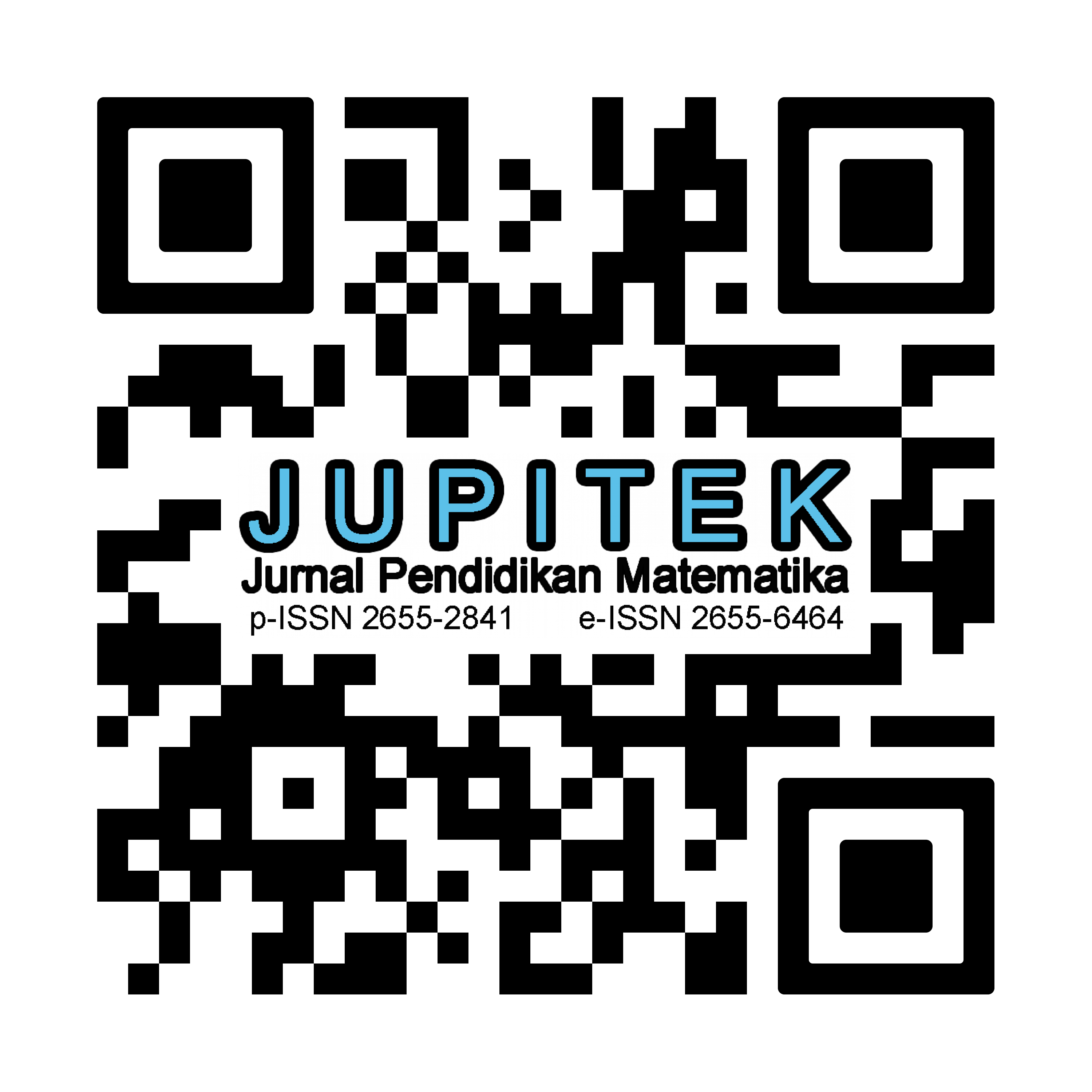PENERAPAN MODEL PEMBELAJARAN KOOPERATIF TIPE INVESTIGATION DENGAN PENDEKATAN OPEN ENDED PROBLEM UNTUK MENINGKATKAN KEMAMPUAN REPRESENTASI MATEMATIS
Abstract
The purpose of this research is to improve the ability of mathematical representation of Grade VIII2 students at SMP Negeri 3 Raha 2018/2019 Academic Year during mathematics learning activities with the application of cooperative learning model in the type group investigation with open ended problem approach. The type of research is classroom researh of two cycles based on teaching syllabus of the mathematics teacher in class VIII2. Each cycle is carried ot based on the competency standards to be achieved in learning. The cycle in this class action research through four stages, namely : planning of action; implementation of action; observation and evaluation; reflection. Based on the result of research conducted on the Grade VIII2 students at SMP Negeri 3 Raha 2018/2019 Academic Year on the competency standards: calculating area and volume of prism and pyramid using cooperative learning model in the type group investigation with open ended problem approach can improve the ability of mathematical representation, which are : respones and learning outcomes shown in cycle II are primly goodand the students scoreof mathematical representation test capability in each cycle has improve signivicantly, until 80% on the last cycle. Moreover, the results showed that there are only 4 students from total 20 students who obtain score 68 which is the minimum completeness criteria set by the school . Student activities and learning management by the teacher in the learning process also increased to cycle II reaching an average of 82% and 81%. Therefore, learning by applying cooperative learning model in the type group investigation with open ended problem approach can improve the ability of mathematical representation
Downloads
References
Agus, Suprijono. 2015. Cooperative Learning. Yogyakarta: Pustaka Belajar.
Arifin, Zainal. 2011. Membangun Kompetensi Pedagodis Guru Matematika. Jawa Timur: Penerbit Cendera Cendekia.
Arikunto, S. 2013. Prosedur Penelitian Suatu Pendekatan Praktik. Jakarta: Rineka Cipta.
Dahlan, Jarnani Afgani, Dadang Juandi. 2011. Analisis Representasi Matematik Sekolah Dasar dalam Penyelesaian Masalah Matematika Kontekstual. Jurnal Pengajaran MIPA. Volume 16 (1):128-138.
Depdikbud. 2014. Peraturan Mentri Pendidikan dan Kebudayaan Republik Indonesia Nomor 103 Tahun 2014 Tentang Pembelajaran pada Pendidikan Dasar dan Menengh. Jakarta: Depdikbud.
Mulyasa. 2013. Pengembangan dan Implementasi Kurikulum 2013. Bandung: Remaja Rosda Karya.
NCTM. 2000. Principles and Standars for Schools Mathematics. Reston. VA : The National Council of Teachers of Mathematics Inc.
Sabirin. 2014. Representasi dalam Pembelajaran Matematika. Jurnal IAIN Antasari: Volume 1 (2): 33-44.
Sutikno, S. 2014. Metode dan Model Pembeajaran. Lombok: Holistika.
Tristiyati, T., & Afriansyah, A.E. 2016. Kemampuan Pemecahan Masalah Matematis Siswa Melalui Model Pembelajaran Kooperatif Tipe Diskurs Multi Repersentasi dan Reiprocal Taeching. Jurnal Silogisme: Kajian Ilmu Matematika dan Pembelajarannya, Volume 1, 4 – 14.
Yuliawati, Fitri,dkk. 2012. Penelitian Tindakan Kelas. Yogyakarta: Pustaka Insan Madani
Copyright (c) 2020 La Ode Sirad, Gemi Susanti, Rasidahtul Adawiah

This work is licensed under a Creative Commons Attribution-NonCommercial-ShareAlike 4.0 International License.
License and Copyright Agreement
By submitting a manuscript to Jurnal Pendidikan Matematika (JUPITEK), the author(s) certify and agree to the following terms:
- Originality and Authority: The submitting author is authorized by all co-authors to enter into this agreement. The manuscript describes original work that has not been published previously in a peer-reviewed journal, nor is it under consideration for publication elsewhere.
- Approval: Its publication has been approved by all author(s) and by the responsible authorities of the institutions where the work was carried out.
- Rights: The authors secure the right to reproduce any material that has already been published or copyrighted elsewhere.
- Licensing and Copyright: Authors retain the copyright to their work.
- License Grant: The authors grant Jurnal Pendidikan Matematika (JUPITEK) the right of first publication, with the work simultaneously licensed under the Creative Commons Attribution-NonCommercial-ShareAlike 4.0 International (CC BY-NC-SA 4.0).
- Self-Archiving: Authors are permitted and encouraged to deposit the published version of their article in institutional repositories, on their personal websites, and other academic platforms, with proper acknowledgment of its initial publication in Jurnal Pendidikan Matematika (JUPITEK).






.png)


